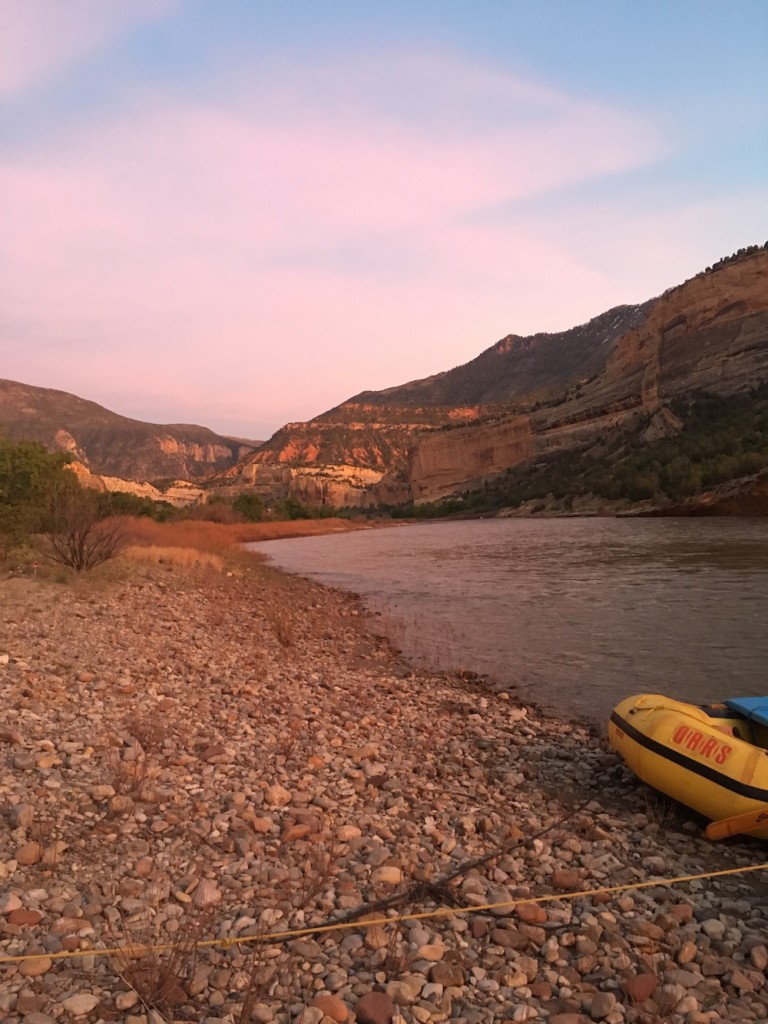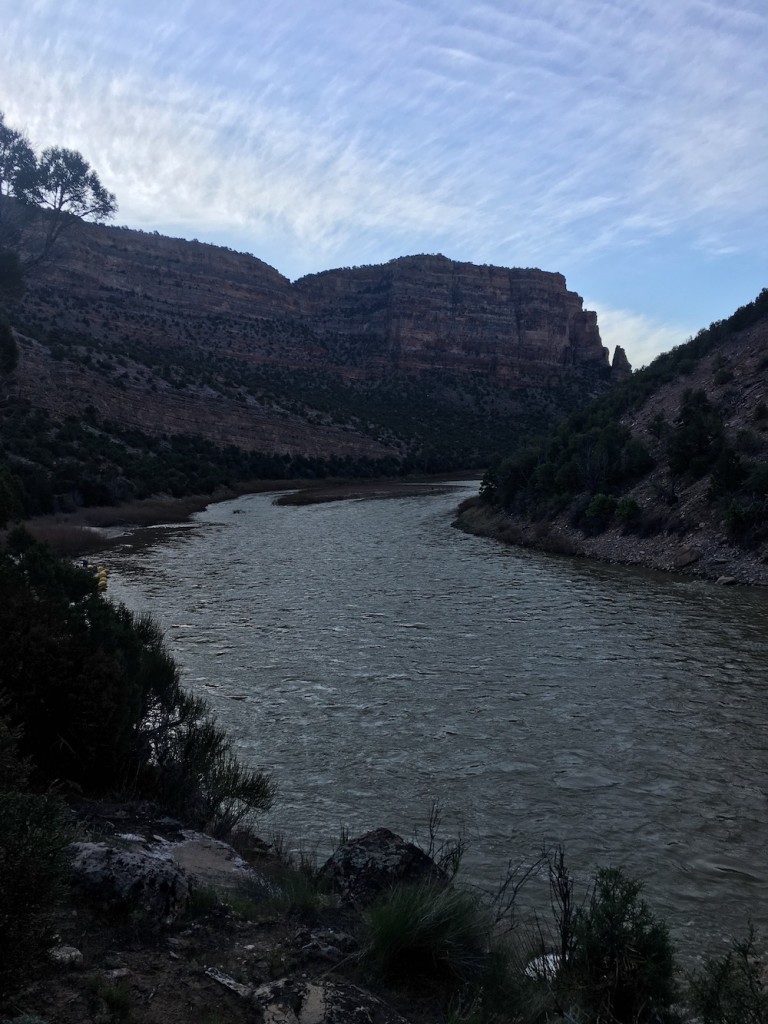
Geology and Grace
Earlier this year, I had the opportunity to raft the Yampa River through Dinosaur National Monument in Colorado in the company of a professional geologist. Several times a day we would stop to have miniature geology lessons surrounded by stunning thousand-foot canyon walls formed by millions of years of slow but dynamic forces. During these lessons the geologist, Jeff, taught us how to read the layers, to distinguish one from another, and to know what forces, materials, and events formed each layer. By the end of the fifth day of Jeff’s able tutelage I found that as we floated along I could gaze at the magnificent canyon walls and at a glance perceive a billion layers of history all at once. I could see deep seas, shallow seas, wind-blasted deserts, and all the various creatures that lived in each place from tiny anemone to the gigantic dinosaurs of the Jurassic age. I allowed my imagination to run wild, seeing in one discrete moment of the present the history of all the environments and creatures that had ever been in that spot.
And suddenly, it came to me that perhaps what I was doing, vividly interpreting the geologic record before me, was as close as we humans will ever get to the eternal perspective enjoyed by the Lord. From the beginning of time, all time has been before Him. Where we perceive past, present, and future, He sees only Now. The days of Abraham are as present before the Lord as is the moment of my writing this, or the moment of Christ’s imminent return. Amid this speculation, I was reminded of the writings of the late theologian Robert Jenson, who contends that it is of the utmost importance that we think of Creation not as the physical part of the universe that we happen to inhabit, but rather as a personal history of the relationship between the Lord and His people. Speaking from His eternal perspective, the Lord commanded not just the cold material of our world, but our history, our story, to come into existence.
This distinction is of the utmost importance to Jenson because it has the power to redefine the way we see ourselves in relation to God. All too often we are tempted to imagine that God created this world, then us, and then we messed it up and God has been working for the rest of history to fix our sorry mistakes. But, Jenson contends, we must not think so. Rather, we must realize that in the very same eternal moment that Eden was spoken into being, so was Calvary. Though it does not always seem so from our temporal perspective, from the beginning, ours is a history of triumphal redemption whose veracity is guaranteed by the same Poet who brought it into being through His Word.
Ultimately our history is best understood in the person of the Word become flesh. Initial creation, redemption, fulfillment, and all other parts of the story must be understood as the making of one unified creation by bringing a story into reality, because, in essence, it is the story of one unified creator – it is the story of creation, redemption, and fulfillment in and through the person of Jesus Christ. Creator and creature, protagonist and antagonist, all united in one person who tells the story of the triune love of God by commanding it to be.
And so, as I contemplate the stories of tyrannosaurs and sand dunes written into canyon walls, I am more conscious that my Father contemplates my story, and the whole story of His people, and I know that in His eyes the very same moment we were fallen, we were and are redeemed by the Lamb who was slain from the foundations of the world.


